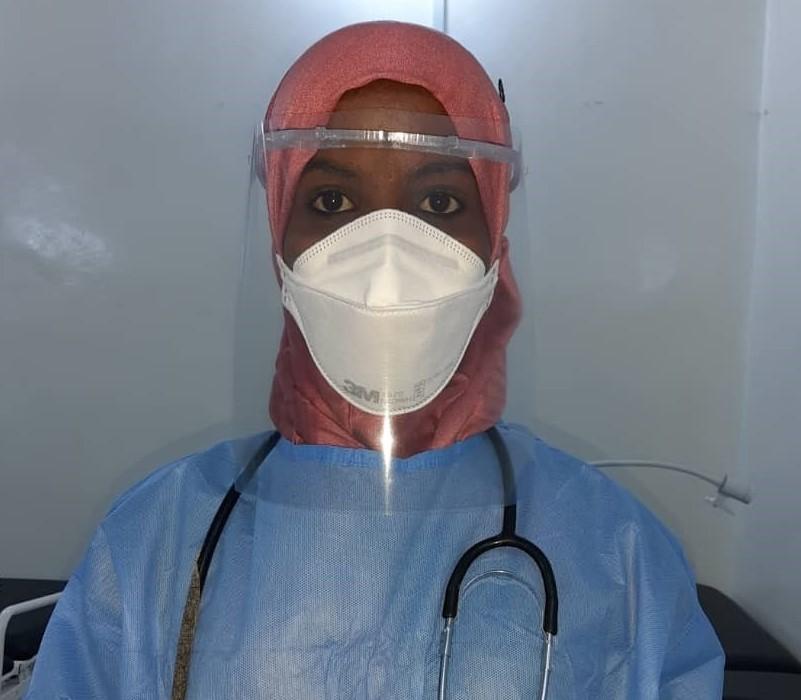Baidoa is the capital of Southwest State of Somalia (SWSS). It is like being on an island but what surrounds it is not water, rather different armed groups. Access to healthcare is just a dream for most of the population that live outside the town. Out of the 517 sites where displaced families live in Baidoa hosting 392,274 people, 59 sites (11%) hosting 53,839 displaced persons were affected by flash flooding this year (according to the ministry of health emergency task force). The illiteracy rate is high among the communities and people are endowed with deep rooted social, cultural and religious beliefs.
The first cases of COVID-19 were confirmed in South West State of Somalia in March 2020, at a period when people were already dealing with a set of complex humanitarian crises, including a desert locust invasion attacking farmlands, disruptive and unpredictable climate patterns, food insecurity, economic shocks, political dilemmas, unemployment and localised flash floods in some regions in the state. Above all and behind the millions of smiles during the pandemic, a cholera outbreak was declared in April 2020 and we supported the ministry of health in response from April to August. Life for most people in the town changed significantly in an atmosphere of uncertainty, insecurity and crisis.
In Bay Regional Hospital where MSF supports vital services, around 12 staff of the 186 colleagues were tested COVID-19 positive just in the first couple of weeks of the pandemic in March 2020. It affected the physical and mental wellbeing of the rest of the staff, no one was untouched.
I still remember that midnight conference call that we had with members of the ministry of health trying to find a solution, having to choose between a total temporary shutdown of all sexual reproductive health services (SRH) or the replacement of the whole staff with quickly contracted new staff. All our ministry of health seconded colleagues in that department were either tested positive or have had contact with a person with confirmed COVID-19. It was one the most difficult decisions we ever made during this pandemic. Our team cares on average for 800 patients and for 240 pregnant women and mothers per week. In the interest of our patients, we chose to replace all the staff and send them into quarantine and to self-isolate at home.
I had a lot on my mind during all these days. Not to mention the constant uncertainty and worries. What if a patient or colleagues develops severe signs and symptoms of COVID-19? What if one of our patients or colleagues would need to be mechanically respirated with a ventilator? Knowing the state didn’t have even one ventilator. What if healthcare workers and caregivers don’t get enough care themselves? How could we continue? These were our constant worries. There was not only the COVID-19 pandemic, we also had to respond to a cholera outbreak. Keeping up with the required infection prevention and control standards and precautions for both cholera and COVID-19 was difficult and sometimes daunting.
Despite the uncertainty, the fears of losing a loved one and between responding to COVID-19 and cholera outbreaks, what kept and keeps us going are the everyday stories of courage and bravery from all the fellow essential frontline workers and health care professionals around the globe. The kind-hearted colleagues in our services have emerged as everyday heroes in these trying times. It is their selflessness and willingness to set aside their fears of contagion, to go out and help people that keeps me going, too.
